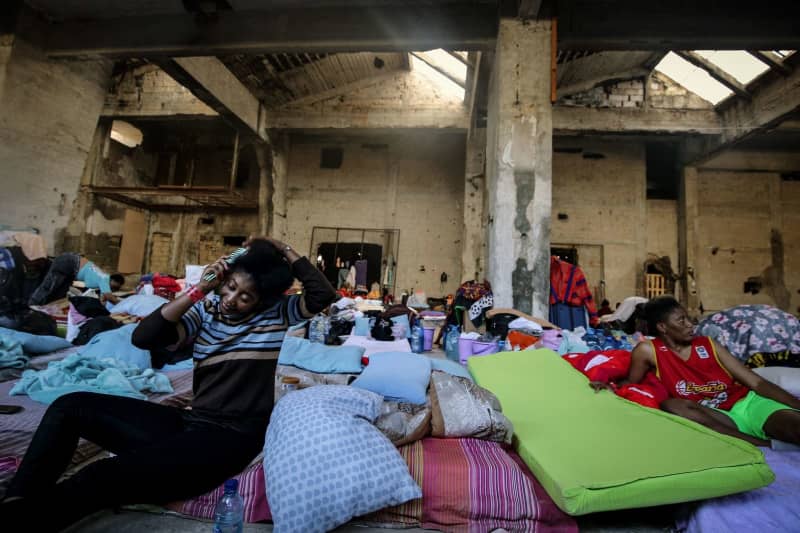Patricia, a domestic worker from Sierra Leone, has found herself caught in the escalating conflict in Lebanon after initially arriving to work. Her situation took a dire turn when the house where she was employed in the southern port city of Tyre was bombed. With fear and uncertainty clouding her future, she expressed a desire to return home, sharing her harrowing experience of being evacuated by ambulance to a makeshift shelter in Beirut. This shelter currently accommodates around 200 other domestic workers, most of whom are similarly stranded and without their passports due to the tumultuous geopolitical situation stemming from Israeli military actions in the region. Patricia’s story underscores the precarious position of foreign domestic workers amid conflict and highlights their desperate need for assistance and protection.
The shelter, organized by a group of activists, serves as a crucial support system for the stranded workers who have been abandoned by their employers. Many of the women, like Patricia, were forced to flee without their identification documents and are now living in fear. Lea Ghorayeb, one of the activists involved, remarked on the dire circumstances in which these migrant workers find themselves. Many are left in the streets amidst ongoing shelling, with little to no resources to escape the conflict. Ghorayeb expressed a commitment to help those who wish to return to their home countries, while also providing assistance to those who prefer to stay in Lebanon by seeking more humane employment opportunities.
Central to the plight of these migrant workers is the Kafala system, a controversial sponsorship arrangement that severely restricts the rights of foreign laborers in Lebanon. Under this system, employers often retain the workers’ passports, effectively trapping them in situations of exploitation and abuse. Reports of mistreatment are common, with many domestic workers facing grueling conditions, including long working hours, confinement within their employers’ homes, and little to no days off. Human rights organizations have condemned the Kafala system as a form of modern-day slavery, raising awareness of the inherent vulnerabilities faced by migrant workers in Lebanon.
The majority of domestic workers in Lebanon come from countries like Sudan, Egypt, Ethiopia, Bangladesh, and Sri Lanka. They often leave their home countries in search of better economic opportunities but find themselves facing enormous risks and challenges in their new environment. Fatima, another Sierra Leonean migrant, spoke about her fears of dying in the ongoing conflict. Her desperation to return home encapsulates the sentiments shared by many workers in the shelter. The alarming reality is that these women, who often bear the brunt of socio-economic hardships back home, are now grappling with an even more complex nightmare in Lebanon.
As the situation continues to unfold, the local activists working to provide for these displaced workers are doing everything in their power to secure basic necessities. They have managed to set up a functioning kitchen within the shelter, allowing the migrants to prepare their own meals amidst the chaos surrounding them. However, the situation remains precarious, with many women feeling hopeless and adrift. The lack of documentation, combined with the uncertainty of the conflict, creates an environment of fear and helplessness. The activists are working tirelessly to negotiate solutions for those who wish to leave Lebanon as soon as it is safe to do so, although logistical challenges persist.
In summary, the plight of foreign domestic workers in Lebanon amidst the ongoing conflict is a tragic manifestation of broader issues related to labor migration and human rights. Women like Patricia and Fatima represent a larger demographic of vulnerable individuals caught in a web of institutional exploitation, armed conflict, and humanitarian crises. The intertwined realities of the Kafala system and the current geopolitical tensions highlight the urgent need for international attention and advocacy to protect the rights of migrant workers. As these organizations and activists fight to secure safety and stability for these individuals, there remains a looming question about the future of labor rights in Lebanon and the necessary reforms needed to prevent such injustices from recurring.

